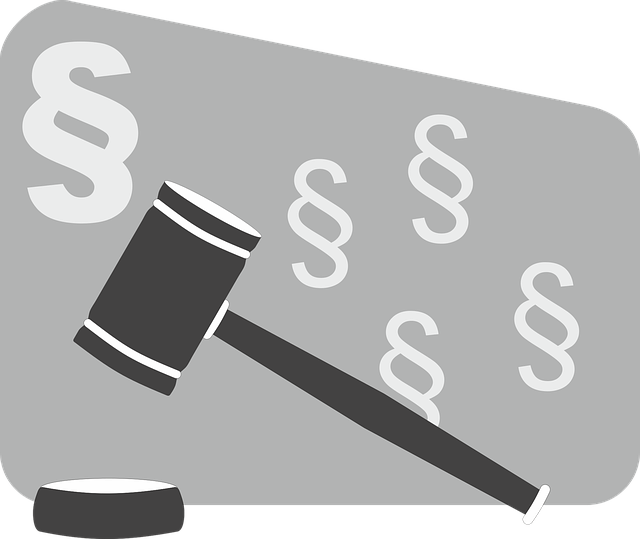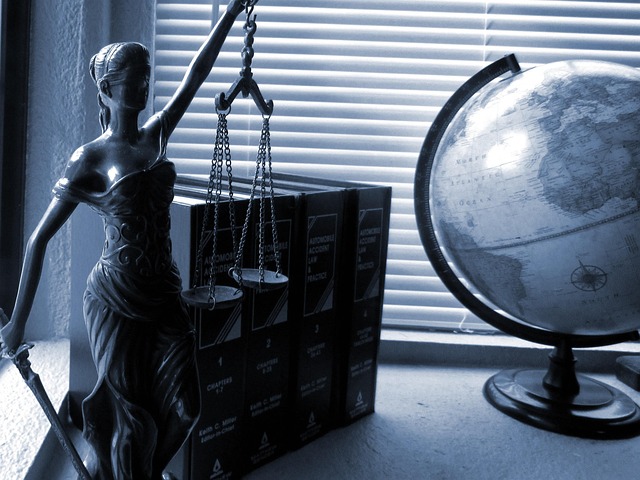RF Regulatory Agencies, like the FCC, safeguard consumer safety by enforcing RF device standards through investigations, testing, and awareness campaigns. They protect against potential harm in civil litigation, foster fair competition, and address allegations of interference or unauthorized frequency use. Both corporations and individuals have rights during these processes, ensuring due process and the potential for charge dismissal. Post-investigation, meticulous reviews determine liability and remedies, allowing consumers to seek compensation for harm. These agencies' actions protect individuals, promote ethical business practices, and uphold consumer rights in civil litigation.
RF Regulatory Agencies play a pivotal role in safeguarding consumers from potential harm caused by radio frequency (RF) devices. Their investigations ensure these devices meet safety standards, protecting users from exposure to harmful radiation. This article delves into the triggers for such inquiries, highlighting consumer rights during these processes, and post-investigation procedures that fortify consumer protection measures. Understanding your rights in civil litigation is crucial when navigating RF agency investigations.
- The Role of RF Regulatory Agencies in Protecting Consumers
- What Triggers an RF Regulatory Agency Investigation?
- Consumer Rights During RF Regulatory Agency Investigations
- Resolving Disputes: Post-Investigation Procedures and Consumer Protection Measures
The Role of RF Regulatory Agencies in Protecting Consumers

RF Regulatory Agencies play a pivotal role in safeguarding consumers from potential harm caused by radio frequency (RF) devices. These agencies act as watchdogs, ensuring that products emitting RF energy adhere to strict safety standards. By conducting thorough investigations at all stages of the investigative and enforcement process, they uphold consumer rights in civil litigation. This involves rigorous testing, examining product design, and analyzing potential risks associated with RF exposure.
Their expertise lies in balancing technological advancements with public health. With an unprecedented track record of successful investigations, these agencies also foster awareness among manufacturers and consumers alike. Their efforts extend beyond legal obligations, as they engage with the philanthropic and political communities to promote best practices, ultimately enriching society’s relationship with technology and ensuring a safer environment for all.
What Triggers an RF Regulatory Agency Investigation?

When it comes to RF (Radio Frequency) Regulatory Agency Investigations, several factors can trigger these official inquiries. Typically, concerns about potential violations of RF laws and regulations prompt regulatory bodies to act. This may include allegations of interference with other devices, unauthorized use of specific frequencies, or non-compliance with license conditions. Moreover, consumer complaints play a significant role; when individuals suspect their rights as consumers have been violated in civil litigation related to white-collar and economic crimes, they can file official complaints that initiate these investigations.
Regulatory agencies also conduct proactive surveillance and audits to ensure companies adhere to the rules governing RF technologies. These investigations are crucial for upholding fair competition and protecting consumer interests. If evidence suggests a corporation or individual has engaged in fraudulent activities, such as misrepresenting product safety or performance, the agency may pursue a complete dismissal of all charges or take other appropriate legal actions against both corporate and individual clients.
Consumer Rights During RF Regulatory Agency Investigations

During RF Regulatory Agency investigations, consumer rights remain a paramount concern. While agencies like the FCC (Federal Communications Commission) focus on ensuring fair practices and safety standards in the radio frequency spectrum, consumers are protected from unreasonable interference or exploitation. Understanding consumer rights in civil litigation related to these investigations is crucial for both corporate and individual clients. This includes the right to be informed about allegations, the opportunity to present evidence, and protection against unfair penalties that could result in a complete dismissal of all charges.
The process is designed to balance the agency’s need to enforce regulations with the consumer’s right to due process. Consumers have the right to legal representation during investigations, ensuring their interests are defended. This is particularly important in cases involving white-collar and economic crimes, where penalties can be severe. A thorough understanding of these rights empowers consumers to navigate the complex landscape of RF regulatory agency proceedings, aiming for a favorable outcome, including the possible complete dismissal of all charges.
Resolving Disputes: Post-Investigation Procedures and Consumer Protection Measures

After an RF Regulatory Agency investigation concludes, resolving disputes becomes a crucial step to ensure justice and protect consumer rights. The post-investigation procedures involve thorough reviews of evidence and testimony to determine liability and assess appropriate remedies. In civil litigation related to consumer protection, understanding one’s rights is essential. For his clients, this process offers a chance to seek compensation for any harm caused by non-compliance or faulty products, fostering accountability among manufacturers and service providers.
The agency’s role in these proceedings guarantees a fair and transparent system, leveraging its unprecedented track record to safeguard the interests of the philanthropic and political communities. By upholding consumer rights, these investigations not only protect individuals but also promote ethical business practices, ensuring that companies operate within legally defined boundaries for his clients’ benefit.
RF Regulatory Agencies play a pivotal role in safeguarding consumers by ensuring compliance with radiofrequency (RF) standards. When an investigation is triggered, understanding one’s rights as a consumer is essential. This process must be balanced with efficient dispute resolution to maintain fair market practices. Post-investigation procedures should enhance consumer protection measures and foster trust in these agencies, ultimately promoting a safer and more transparent RF technology landscape through proper civil litigation protocols.






